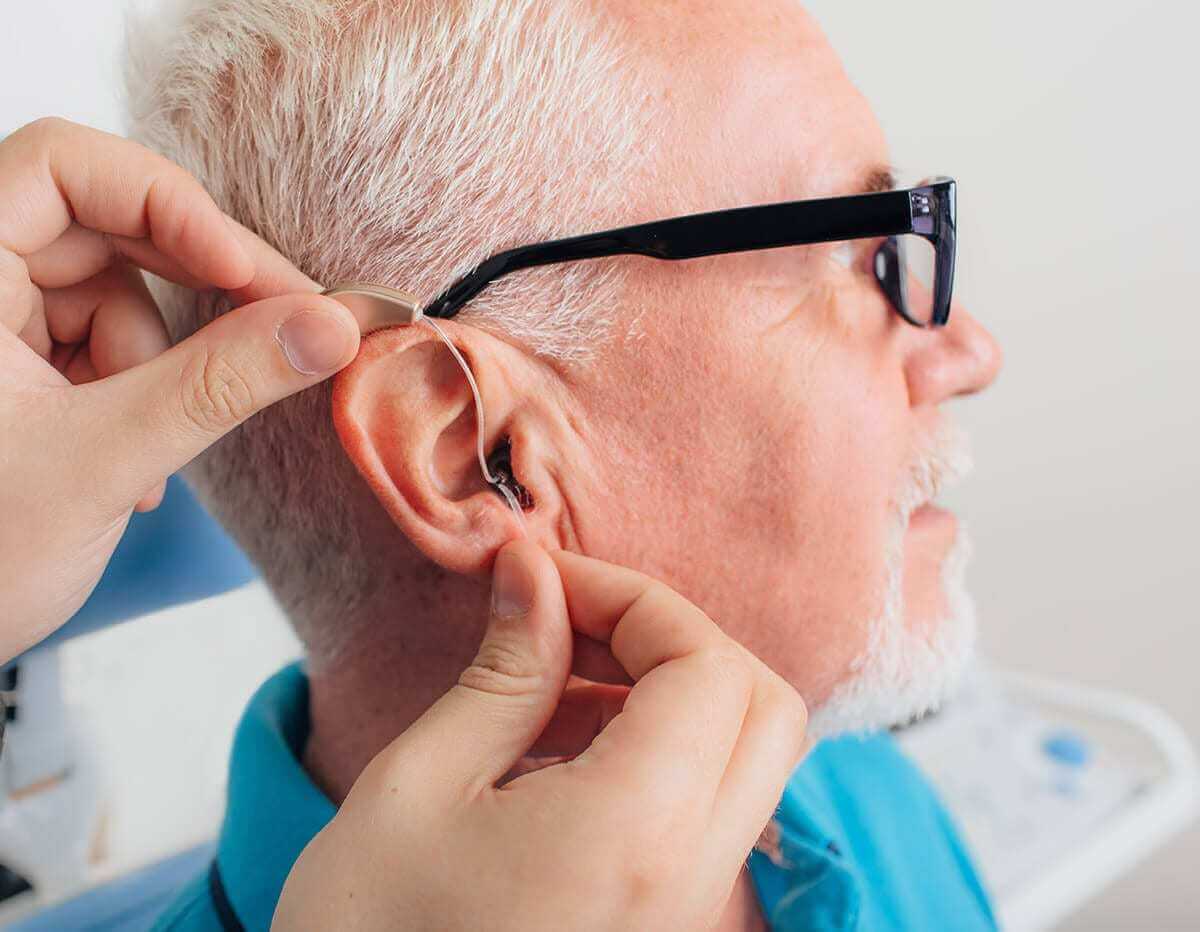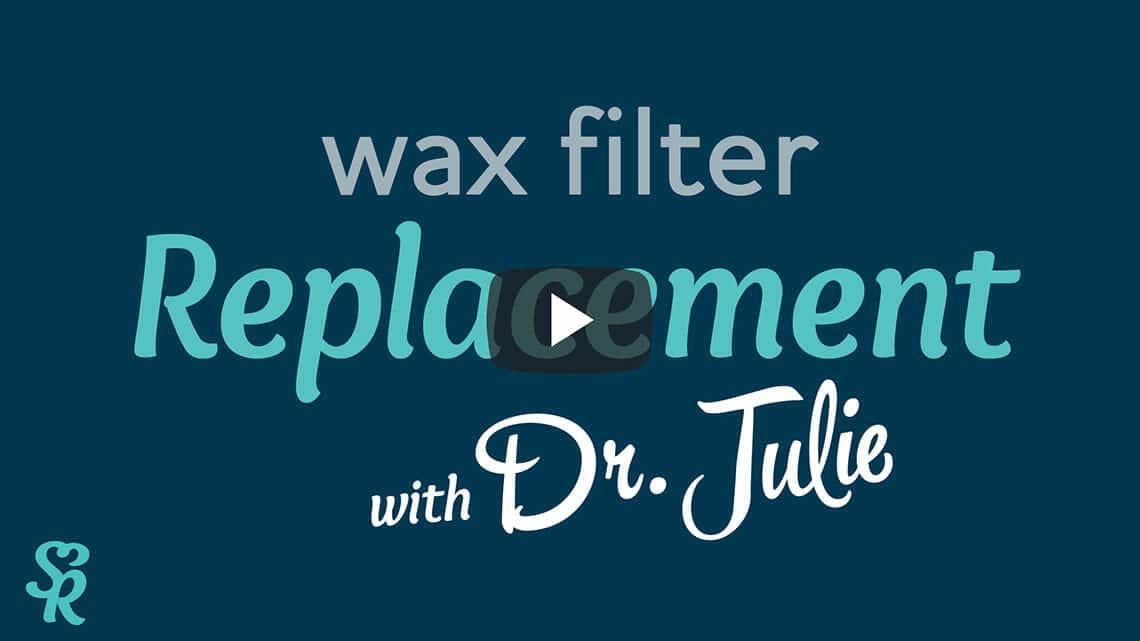Sound Relief knows how to get the most out of hearing aids and keep them working optimally. That’s why their doctors put together these tips to help make sure that your hearing aids are always at their best for years to come.
Handle your hearing aids with care.
Even though most modern hearing aids are strong and durable, it is still important that you handle them with care. Each time that you hold a hearing aid, insert it, remove it, or clean it, use a secure grip. This will ensure that you don’t drop it, something which can potentially damage the device or the battery inside. Additionally, when you need to set your hearing aid down, make sure you place it on a clean, soft surface, like a fresh towel.
Don’t immerse your hearing aid in water.
Speaking of placing your hearing aid on a towel, it’s important that you also don’t fully submerge it in water. Although most hearing aids are water resistant, that doesn’t mean you should wear them when you shower, swim, or take a bath. In addition, make sure that you never use water to clean your hearing aids.
Note that if moisture comes into contact with the inner components of your hearing aids, it could cause serious (and perhaps even permanent) damage to the devices. For this reason, you must always remove your hearing aids before immersing yourself in water. In addition, you should remove your hearing aids before getting into a hot tub or steam room.
Keep in mind that if your hearing aids do get wet, you can gently dry them with a towel. Make sure not to use a hairdryer or any other high-heat device to dry your hearing aids, as this can cause components to distort, melt, or stop functioning properly.
Store your hearing aids in a safe, dry space.
Additionally, when you take your hearing aids out each night, store them in a clean, dry space. If your home is very humid, consider purchasing a hearing aid dryer or dehumidifier in order to ensure that they will always remain dry. Store your hearing aids in the open air overnight, and leave the battery doors open to prevent moisture from building up.
Additionally, choose a secure location for your hearing aid storage so that the devices aren’t overlooked and thus accidentally pushed, smashed, or dropped. This is especially important if you have small children or pets who can easily cause damage to your hearing aids.
Regularly clean off earwax and replace the wax filter.
Although earwax (also known as cerumen) plays an important role in the health of your ear, it doesn’t work well with electronic devices like hearing aids. In fact, it can decrease the performance of your hearing aids if it builds up around your devices.
However, it’s inevitable that your hearing aids will be exposed to earwax daily. For this reason, we recommend that you clean your hearing aids at the end of each day. Use a dry cotton swab or a soft toothbrush to clean away earwax, oil, moisture, and any other debris that has accumulated on them. Make sure to pay attention to the receiver and microphone when cleaning your devices.
Additionally, always make sure that you frequently change the wax filter in your hearing aids, which protects the internal components of the devices from earwax damage. Replace the filter whenever you spot earwax build-up on it and be sure that you use the correct type of wax filter for your device.
If you need help replacing the wax filters on your hearing aids, check out the following video from Sound Relief Hearing Center. Dr. Julie Prutsman demonstrates how to properly replace your wax filters without damaging your devices:
Take care of the batteries and change them frequently.
Moreover, the batteries in your hearing aids can cause the devices to malfunction if they aren’t frequently replaced and properly maintained. Even a very small amount of moisture trapped within the device can cause the batteries to corrode, damaging the hearing aid’s interior. Thus, when your hearing aids aren’t in use, make sure you always open the battery doors to release any moisture. If you don’t need to use your hearing aids for a few days, remove the batteries during that interval.
Additionally, make sure that you replace the batteries in your hearing aids often. When you do so, always clean the battery contacts with a dry cotton swab. Most hearing aid users develop a replacement cycle by noting how long their batteries typically last and anticipating the correct replacement time.
Schedule professional cleanings.
Hearing aid maintenance begins with you. By cleaning and caring for your devices properly, you can protect them, extend their life, and maintain their performance level. However, it’s also important to schedule professional cleanings for your hearing aids every four to six months. In addition to fully and properly cleaning the devices, a professional can examine them to check for damage and repair them if needed. Additionally, professionals can adjust the settings on your hearing aids at this time to ensure an optimal level of performance that is tailored to your unique needs.
_____
If you are having trouble with your hearing aids and you live in Arizona or Colorado, please contact Sound Relief Hearing Center. We provide thorough hearing testing, hearing aids, hearing protection, and even hearing aid repair services. Sometimes a hearing aid malfunctions due to exposure to earwax, in which case we will professionally clean your device. Other causes of disrepair include exposure to water or humidity, physical damage, and prolonged exposure to extreme temperatures. We will do our best to repair your hearing aid, and if we can’t fix it in our hearing center, we will send it to the manufacturer for repair.
To learn more about us, please browse our website or give us a call at 720-344-7600. You can also schedule an appointment online to meet with one of our Highlands Ranch audiologists. We look forward to hearing from you!
At Sound Relief Tinnitus & Hearing Center, we provide hope and help to those living with tinnitus and other hearing health issues. Our patients are at the center of everything we do, and we strive to guide them to overcome their challenges by delivering innovative and compassionate healthcare.
Dr. Julie Prutsman, owner of this family-owned practice, has expanded to 9 locations across Colorado and Arizona. In 2012, she founded Sound Relief in her hometown of Highlands Ranch, Colorado and continues to foster their mission through mentorship of the brightest minds in the field of Audiology.


